Description
What are the Ingredients in Piriton Syrup?
Piriton Syrup contains the following ingredients:
Active Ingredient:
- Chlorphenamine Maleate (2 mg per 5 ml): The active ingredient that helps to relieve allergy symptoms.
Inactive Ingredients (Excipients):
- Sucrose: A sweetening agent to improve the taste of the syrup.
- Glycerol: Adds moisture and sweetness, contributing to the syrup’s consistency.
- Ethylene Glycol Monostearate: Helps to emulsify and stabilise the mixture.
- Sorbitol Solution: A sweetener that also acts as a humectant, preventing the syrup from drying out.
- Sodium Benzoate: A preservative that helps extend the shelf life of the syrup.
- Citric Acid Monohydrate: Used to adjust the acidity (pH) of the syrup.
- Water: Acts as the solvent, making up the bulk of the syrup.
- Artificial Flavouring: Provides a palatable taste to make the syrup easier to consume.
Are There Any Side Effects of Taking Piriton Syrup?
Piriton Syrup, like other medications, can cause side effects in some individuals. Here are the most common side effects:
Common Side Effects:
- Drowsiness: Piriton Syrup often causes drowsiness, so avoid activities that require full alertness, like driving or operating machinery.
- Dry Mouth: The syrup may cause your mouth to feel dry.
- Dizziness: Some users may experience lightheadedness or dizziness.
- Nausea: Mild nausea might occur after taking the syrup.
- Blurred Vision: In some cases, vision may become temporarily blurred.
Less Common Side Effects:
- Constipation: Piriton may slow down bowel movements, leading to constipation.
- Difficulty Concentrating: The drowsiness from the syrup can affect your ability to focus.
- Dry Eyes: The medication might cause dryness in the eyes.
Rare Side Effects:
- Allergic Reactions: In rare cases, individuals may experience allergic reactions, including rashes, itching, swelling (especially of the face, tongue, or throat), severe dizziness, or trouble breathing.
If you notice any severe side effects or signs of an allergic reaction, seek medical help immediately.
Warnings and Precautions of Taking Piriton Syrup
Before taking Piriton Syrup, consider the following warnings and precautions:
- Drowsiness: Piriton Syrup can cause drowsiness, which may be more pronounced in some people. Avoid alcohol and other sedatives as they can enhance this effect.
- Interactions with Other Medicines: Inform your healthcare provider about any other medications you are taking, especially those that cause drowsiness, such as sedatives, sleeping pills, or certain antidepressants.
- Medical Conditions: Consult your doctor before using Piriton Syrup if you have conditions like asthma, glaucoma, liver disease, epilepsy, or high blood pressure, as the medication may worsen these conditions.
- Pregnancy and Breastfeeding: If you are pregnant or breastfeeding, seek advice from your healthcare provider before using Piriton Syrup. The active ingredient can pass into breast milk and may affect your baby.
- Age Considerations: Use Piriton Syrup with caution in elderly individuals and children. The elderly are more prone to side effects like confusion and dizziness. Always follow your doctor’s instructions when giving the syrup to children.
How to Take Piriton Syrup
Follow these guidelines when taking Piriton Syrup:
Dosage:
- Adults and Children Over 12 Years: Take 10 ml every 4 to 6 hours. Do not exceed 60 ml in 24 hours.
- Children Aged 6 to 12 Years: Take 5 ml every 4 to 6 hours. Do not exceed 30 ml in 24 hours.
- Children Aged 2 to 6 Years: Take 2.5 ml every 4 to 6 hours. Do not exceed 15 ml in 24 hours.
- Children Under 2 Years: Only give Piriton Syrup to children under 2 years old if prescribed by a doctor.
Instructions:
- Measure the Dose Carefully: Use the measuring cup or spoon provided with the syrup to ensure accurate dosing.
- Take with or Without Food: Piriton Syrup can be taken with or without food, depending on your preference.
- Shake Well: Always shake the bottle well before each use to ensure the ingredients are evenly mixed.
- Follow the Schedule: Space out the doses evenly throughout the day. If you miss a dose, take it as soon as you remember, but skip it if it’s almost time for your next dose. Do not double the dose to make up for a missed one.
Storage: Keep the syrup in a cool, dry place, away from direct sunlight, and out of reach of children. Do not use after the expiration date.
If you have any questions or concerns about taking Piriton Syrup, consult your healthcare provider for personalised advice.

 Free Nationwide Delivery
Free Nationwide Delivery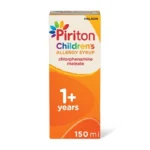
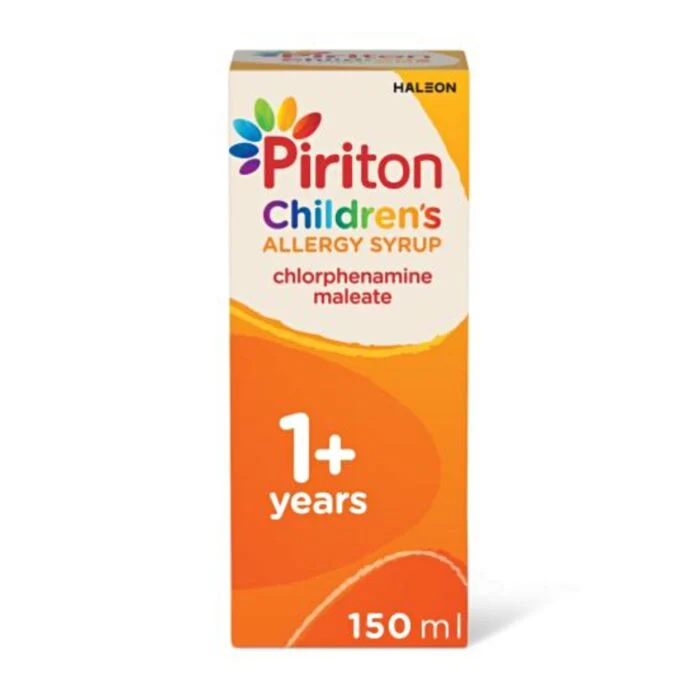
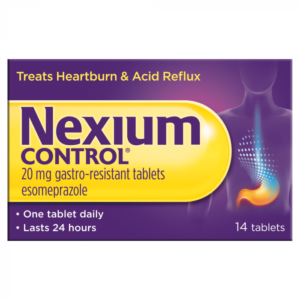
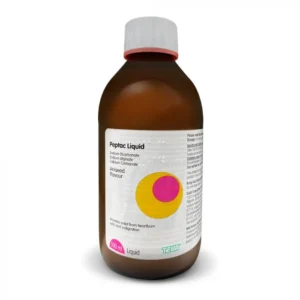
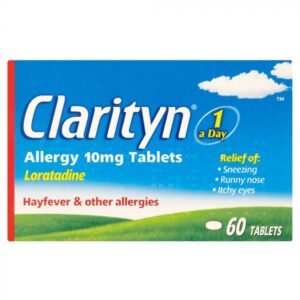
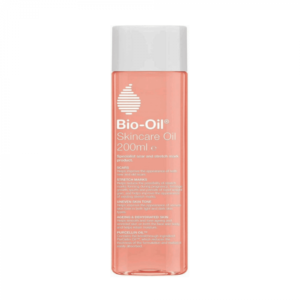
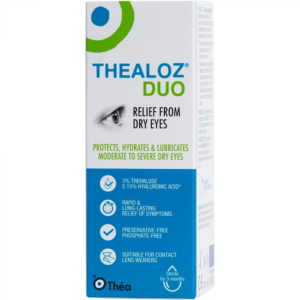

Reviews
There are no reviews yet.